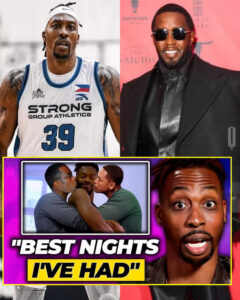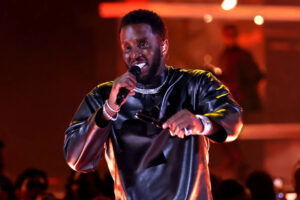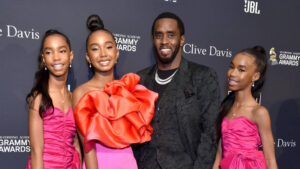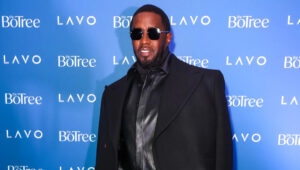In a stunning revelation that has sent shockwaves through both the sports and entertainment industries, former NBA star Dwight Howard has publicly come out as gay and claimed to have had intimate relationships with several high-profile Hollywood figures, including the likes of Will Smith and Diddy. This announcement has sparked widespread discussions about sexuality, identity, and the pressures faced by public figures in both the sports world and Hollywood.

Howard, known for his formidable presence on the basketball court, has been an enigmatic figure off it. His career, marked by numerous accolades including three Defensive Player of the Year awards and a championship with the Los Angeles Lakers, has often been overshadowed by speculation about his personal life. For years, rumors swirled around his sexuality, but Howard remained largely silent on the matter until now. In a candid interview, he opened up about his experiences, the relationships he had, and the internal struggles he faced while navigating a world that often demands conformity.

The implications of Howards revelations are profound. In a culture that frequently equates masculinity with heteronormativity, Howards candidness challenges long-standing stereotypes and encourages a reevaluation of what it means to be a man in the public eye. The intersection of sports and sexuality has historically been fraught with tension, with many athletes feeling pressured to adhere to traditional gender roles. By coming forward, Howard is not only reclaiming his narrative but also paving the way for other athletes to embrace their true selves without fear of backlash.
Moreover, Howards claims regarding his relationships with other prominent figures in Hollywood add another layer of complexity to this conversation. Names like Will Smith and Diddy are not just celebrities; they are cultural icons who have, until now, largely remained in the realm of heterosexual portrayals. Howards assertions prompt questions about the fluidity of sexual orientation and the hidden truths behind celebrity personas. In a society that often celebrates diversity, the shadows of secrecy can still loom large, especially for those in the limelight.

The reaction to Howards revelations has been mixed. While many fans and advocates have praised him for his bravery and authenticity, others have expressed skepticism. Critics argue that such claims could be a publicity stunt or an attempt to manipulate public perception. However, the importance of Howards story lies not just in its veracity, but in its potential to inspire dialogue about acceptance and understanding in both the sports community and the entertainment industry.
This moment serves as a reminder of the necessity for safer spaces where individuals can express their identities without fear of retribution. Howards experiences illustrate the importance of allyship and support, not just for LGBTQ+ individuals, but for everyone grappling with their identity in a world that can often be unkind. The need for visibility in these conversations is paramount, as it fosters a culture of acceptance and understanding.

As the world grapples with these revelations, it is essential to acknowledge the broader societal implications. Howards story resonates with countless individuals who face similar struggles, making it a pivotal moment in the ongoing fight for equality and representation. By speaking his truth, Howard not only challenges the status quo but also encourages others to embrace their authenticity, reminding us that love and acceptance transcend the confines of societal expectations.
In conclusion, Dwight Howards coming out marks a significant moment not just for him, but for the entire cultural landscape. His brave admission and the subsequent discussions it has ignited serve as a catalyst for change, urging society to move towards a more inclusive and understanding future. As more individuals from all walks of life share their truths, we inch closer to a world where everyone can live authentically, free from the shadows of judgment and stigma.